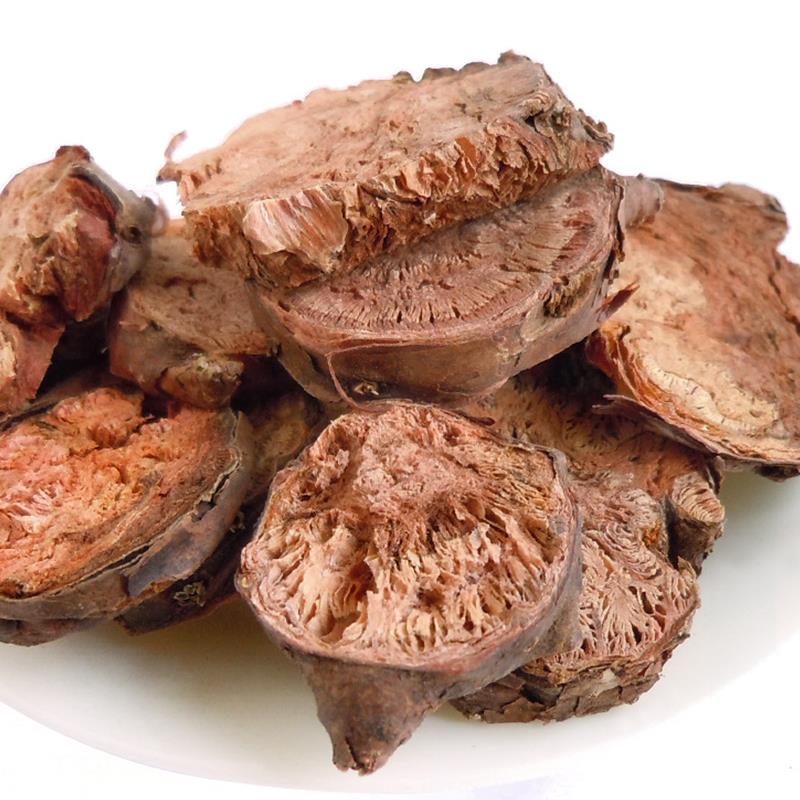What is Rhodiola rosea?
Rhodiola rosea is a perennial flowering plant in the family Crassulaceae, it grows to approximately 30 inches tall and is found mostly in wild regions with high latitudes in Asia and Europe. Rhodiola rosea has several shoots growing from the same thick, short, scaly root, from 50 to 350 mm in height. It blooms in summer with 4 sepals and 4 petals, yellow to greenish yellow and tipped with red, about 1 to 3.5 mm long. It’s almost 100 different species of rhodiola that are known to have unique properties. The root of Rhodiola, also known as golden root or roseroot, can help alleviate anxiety and generalized anxiety disorder symptoms. The plant’s phytochemicals are thought to enhance mental energy and relieve anxiety.
Rhodiola has been used in traditional medicine in India and Chinese for centuries. Modern study has shown that Rhodiola is an adaptogen that supports the central nervous system. It can reduce fatigue and boosts levels of natural endorphins and reduce generalized anxiety disorder symptoms. This article will explore the benefits of rhodiola for anxiety and its side effects.
Is Rhodiola Rosea Good For Anxiety?
Rhodiola is a central nervous system adaptogen. The herb Rhodiola Rosea supports the normal activity of the sympathetic nervous system (SNS), the part of the body responsible for our “fight or flight” responses. This activity is associated with anxiety symptoms, including increased heart rate, shaking, dizziness, and shortness of breath. The antidote to the SNS is the parasympathetic nervous system (PSN), which slows down the SNS and decreases the physical symptoms of anxiety.
Adaptogens such as rhodiola are compounds found in plants that can help people cope better with stressful situations. It can balance stress hormones in the brain. Several studies have shown that rhodiola can reduce the symptoms of burnout, which is a common side effect of chronic stress. In one study involving 118 people with burnout took 400 mg of rhodiola daily for 12 weeks, participants reported an improvement in burnout symptoms, most notably in the first week.
It helps improve memory and focus. Rhodiola extract can improve mental health and help prevent and manage chronic stress and anxiety. In a recent study, eight people with anxiety took Rosea extracts, results showed significant reductions in symptoms and an improvement in mood. However, the researchers caution that further studies are needed to confirm the effect of rhodiola on mood and anxiety.
It increases levels of natural endorphins. In addition to being an adaptogen, Rhodiola can also help combat sleep problems and mild anxiety. People with GAD may find that rhodiola reduces their levels of anxiety and confusion. Rhodiola extract reduces the production of cortisol, a steroid hormone produced by the adrenal gland in response to stress. High cortisol levels alter cellular metabolism, leading to poor sleep and anxiety. Some people also experience reduced energy levels, lack of concentration, and insomnia.
It reduces mental fatigue. There is some evidence to suggest that Rhodiola herb helps to reduce mental fatigue and improve cognitive performance. In a study of military cadets and physicians, Rhodiola reduced mental fatigue by improving their cognitive performance after only five days of supplementation. Its phytonutrient salidroside has neuroprotective properties that inhibit nitrous oxide pathways and stimulate antioxidant enzymes. Studies suggest that it may also improve memory and protect nerves from oxidative damage.
It shortens recovery after exercise. The benefits of Rhodiola rosea have not been fully explored, but there are several promising studies that point to the possibility of improving physical and mental performance. The herb may even help athletes improve their recovery times after physical work. This study involved eleven physically active college students, who took a daily dose of 1,500mg of Rhodiola. The participants took a dose of 500mg 30 minutes before the exercise trials and then completed three x 15-second Wingate anaerobic tests with active recovery periods of 2 minutes.
What Are The Side Effects Of Rhodiola?
If you’re suffering from an anxiety disorder or suffer from a condition that makes you feel faint, Rhodiola can help, this herb was traditionally used in colder climates to treat fatigue, enhance sexual potency, and promote happiness. However, it has now been linked to a range of other conditions, including fainting, depression, and sleep disorders. So, Does Rhodiola have side effects?
Side effects of rhodiola rosea are rare and usually mild. As a daily supplement, rhodiola may cause allergies, heart palpitations, gastrointestinal distress, headaches, nausea and other symptoms. Most of the side effects are related to overconsumption. In addition, the herb may interact with other drugs. For example, some people report drowsiness while taking rhodiola’s antidepressant. However, low doses can usually reduce or completely avoid these symptoms.
In short, Research has suggested that the herb Rhodiola is effective in the treatment of fatigue. This plant’s adaptogenic properties can help the body adjust to stress and improve energy levels. Many people are suffering from fatigue, and modern medical care has little to offer. Traditional healing methods have venerated Rhodiola rosea, which contains an extract that can improve your energy levels. If you’re one of those people who suffer from anxiety and lethargy, it’s worth a try.




